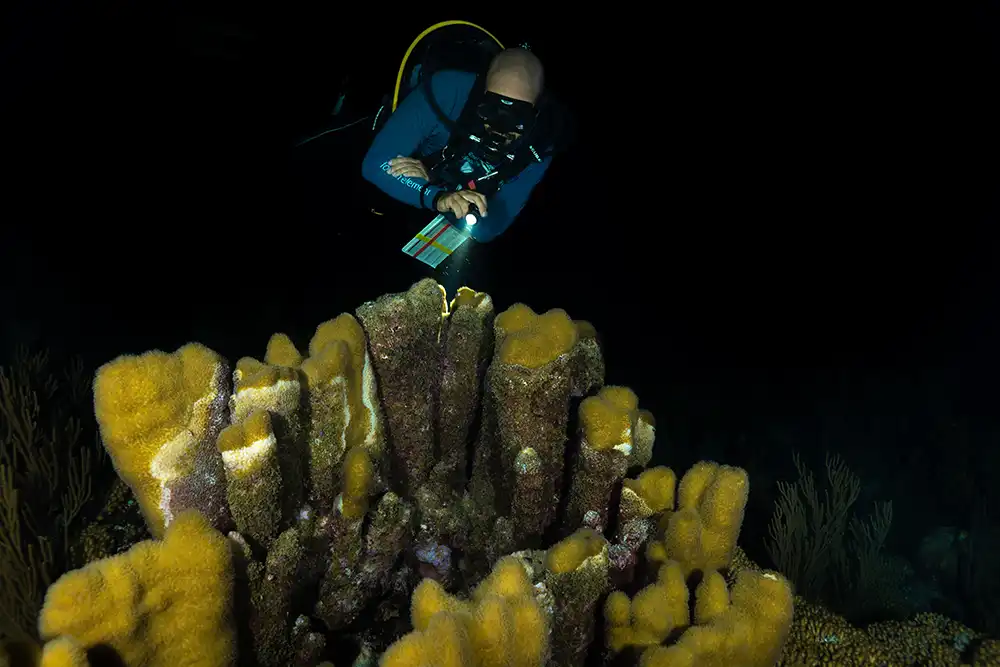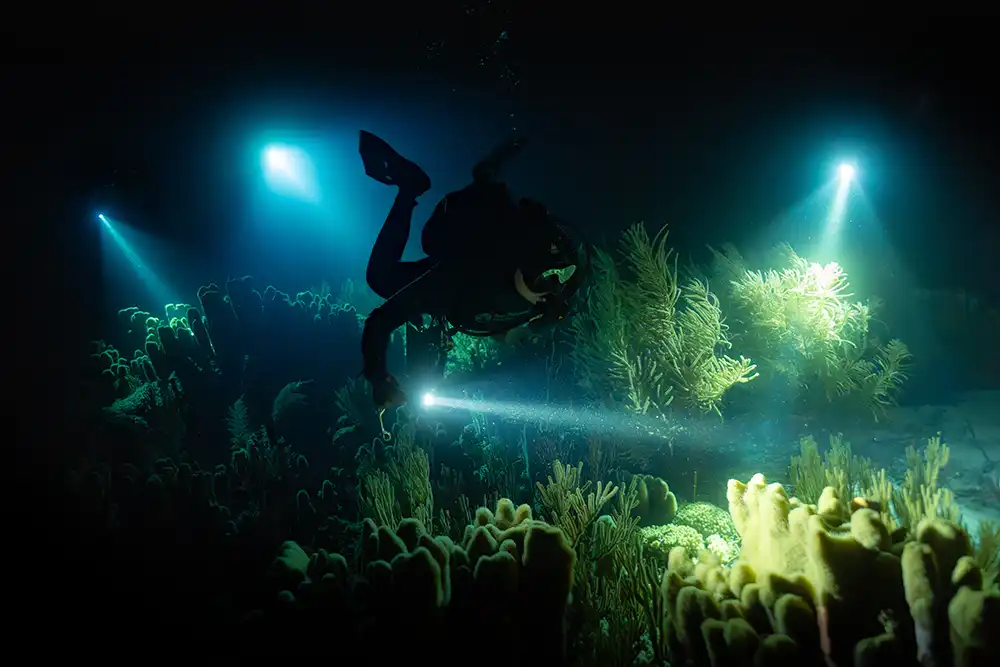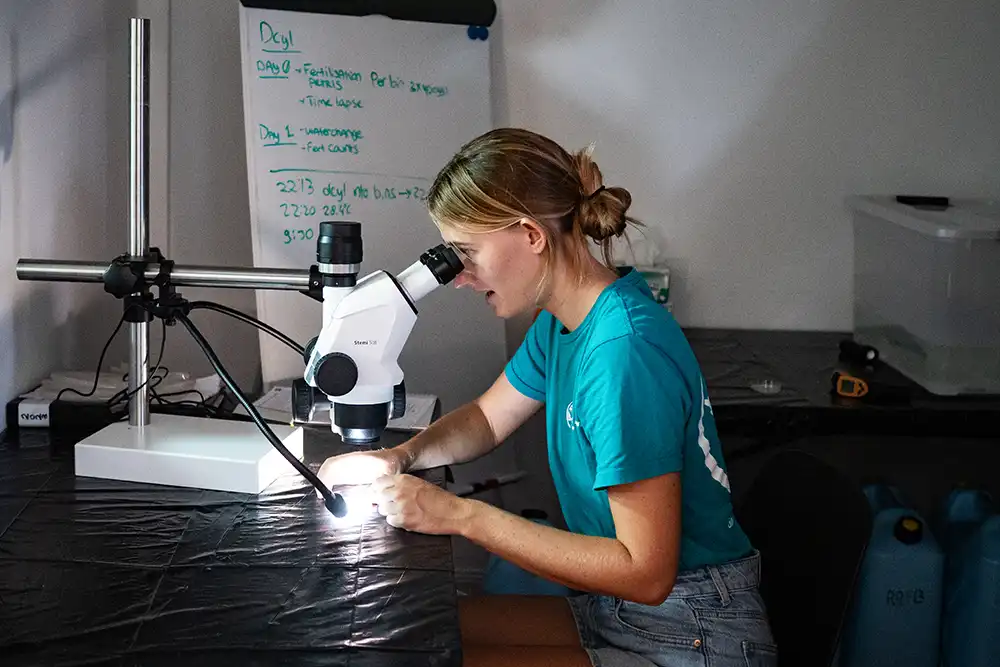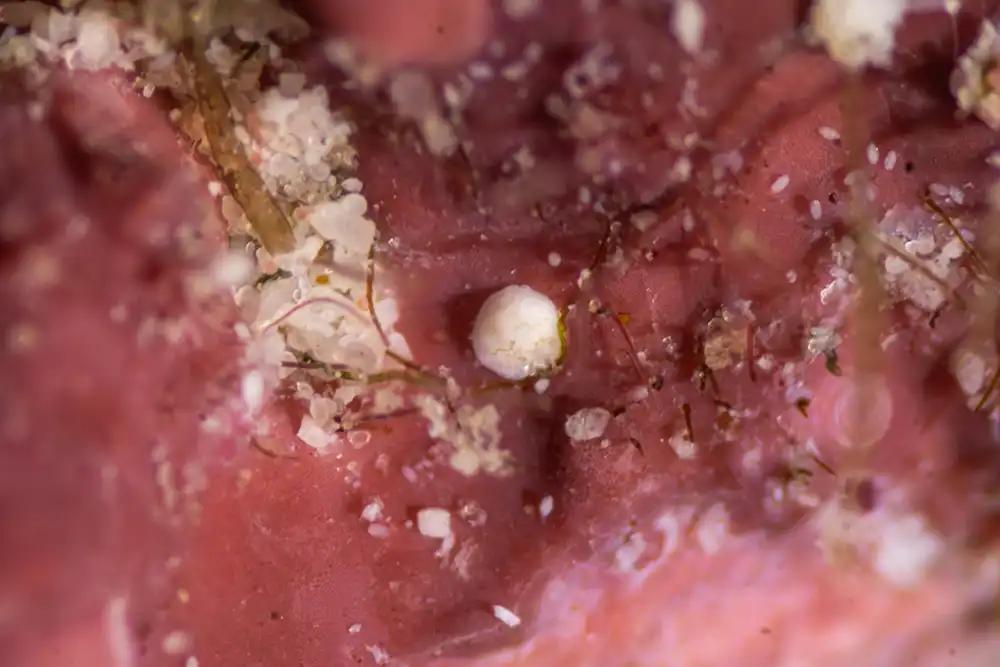
By DIVE Workers
The Reef Renewal Basis Bonaire (RRFB) has introduced that its scientists have efficiently bred the uncommon and critically endangered pillar coral (Dendrogyra cylindrus) in its coral restoration laboratories.
The coral was bred utilizing sperm and eggs collected throughout a latest spawning occasion. The younger corals shall be transferred to underwater nurseries and their progress monitored earlier than being transplanted again into the reef.
Pillar coral is endemic to the reefs of Florida and the Caribbean Sea. Populations throughout the area have declined sharply lately because of the unfold of Stony Coral Tissue Loss Illness (SCTLD), and bleaching from consecutive marine heatwaves.
The discount in pillar coral cowl has left solely scattered colonies of the species, making pure replica tough as there’s much less likelihood of sperm and eggs assembly within the water column.

Elevated separation between coral colonies additionally reduces the probability of genetic mixing between colonies. Genetic diversification is among the key mechanisms by which coral can adapt to altering circumstances.
Pillar coral is usually known as a ‘canary of the reef’, because the species is extremely delicate to ocean change and infrequently the primary to indicate indicators of stress.
‘Serving to pillar corals reproduce right here is greater than only a milestone for us— it’s a lifeline for a species that’s vanishing from Bonaire’s reefs,’ mentioned RRFB’s Lead Restoration Technician, Cheyenna de Wit.
Associated articles

RRFB says that its latest success underscores the essential position of energetic coral restoration. A rising physique of analysis has proven that coral breeding and fragmentation – wherein damaged corals are transferred to nurseries to regrow in much less annoying circumstances – may give corals a greater likelihood to adapt to modifications in ocean circumstances.
A examine printed in 2024 following the Caribbean mass bleaching occasion of 2023 discovered that ‘assisted sexual replica’ was a key consider creating genetically various coral able to surviving bleaching occasions.
A separate examine printed in 2025 additionally discovered that tolerance to elevated water temperatures could be handed down from father or mother corals to their offspring, and that younger, lab-reared corals present larger resilience to bleaching than wild colonies.

RRFB’s work is a part of a wider collaboration with SECORE Worldwide and Fundación Dominicana de Estudios Marinos (FUNDEMAR), geared toward testing new coral breeding applied sciences throughout the Caribbean.
By making use of the methods at scale, RRFB is now able to producing tens of hundreds of younger corals every year.
Along with its latest pillar coral success, the group was capable of produce 56,000 staghorn coral larvae throughout the identical time interval, and raised greater than 26,000 younger grooved mind coral earlier this 12 months.

